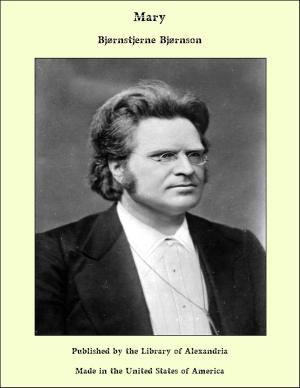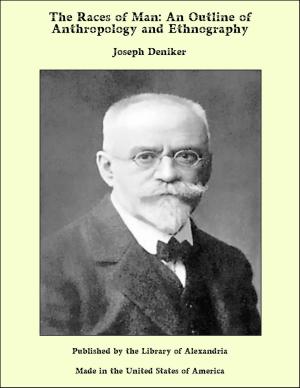Rousseau and Romanticism
Nonfiction, Religion & Spirituality, New Age, History, Fiction & Literature| Author: | Irving Babbitt | ISBN: | 9781465612472 |
| Publisher: | Library of Alexandria | Publication: | March 8, 2015 |
| Imprint: | Language: | English |
| Author: | Irving Babbitt |
| ISBN: | 9781465612472 |
| Publisher: | Library of Alexandria |
| Publication: | March 8, 2015 |
| Imprint: | |
| Language: | English |
The words classic and romantic, we are often told, cannot be defined at all, and even if they could be defined, some would add, we should not be much profited. But this inability or unwillingness to define may itself turn out to be only one aspect of a movement that from Rousseau to Bergson has sought to discredit the analytical intellect—what Wordsworth calls “the false secondary power by which we multiply distinctions.” However, those who are with Socrates rather than with Rousseau or Wordsworth in this matter, will insist on the importance of definition, especially in a chaotic era like the present; for nothing is more characteristic of such an era than its irresponsible use of general terms. Now to measure up to the Socratic standard, a definition must not be abstract and metaphysical, but experimental; it must not, that is, reflect our opinion of what a word should mean, but what it actually has meant. Mathematicians may be free at times to frame their own definitions, but in the case of words like classic and romantic, that have been used innumerable times, and used not in one but in many countries, such a method is inadmissible. One must keep one’s eye on actual usage. One should indeed allow for a certain amount of freakishness in this usage. Beaumarchais, for example, makes classic synonymous with barbaric. One may disregard an occasional aberration of this kind, but if one can find only confusion and inconsistency in all the main uses of words like classic and romantic, the only procedure for those who speak or write in order to be understood is to banish the words from their vocabulary. Now to define in a Socratic way two things are necessary: one must learn to see a common element in things that are apparently different and also to discriminate between things that are apparently similar. A Newton, to take the familiar instance of the former process, saw a common element in the fall of an apple and the motion of a planet; and one may perhaps without being a literary Newton discover a common element in all the main uses of the word romantic as well as in all the main uses of the word classic; though some of the things to which the word romantic in particular has been applied seem, it must be admitted, at least as far apart as the fall of an apple and the motion of a planet. The first step is to perceive the something that connects two or more of these things apparently so diverse, and then it may be found necessary to refer this unifying trait itself back to something still more general, and so on until we arrive, not indeed at anything absolute—the absolute will always elude us—but at what Goethe calls the original or underlying phenomenon (Urphänomen). A fruitful source of false definition is to take as primary in a more or less closely allied group of facts what is actually secondary—for example, to fix upon the return to the Middle Ages as the central fact in romanticism, whereas this return is only symptomatic; it is very far from being the original phenomenon. Confused and incomplete definitions of romanticism have indeed just that origin—they seek to put at the centre something that though romantic is not central but peripheral, and so the whole subject is thrown out of perspective.
The words classic and romantic, we are often told, cannot be defined at all, and even if they could be defined, some would add, we should not be much profited. But this inability or unwillingness to define may itself turn out to be only one aspect of a movement that from Rousseau to Bergson has sought to discredit the analytical intellect—what Wordsworth calls “the false secondary power by which we multiply distinctions.” However, those who are with Socrates rather than with Rousseau or Wordsworth in this matter, will insist on the importance of definition, especially in a chaotic era like the present; for nothing is more characteristic of such an era than its irresponsible use of general terms. Now to measure up to the Socratic standard, a definition must not be abstract and metaphysical, but experimental; it must not, that is, reflect our opinion of what a word should mean, but what it actually has meant. Mathematicians may be free at times to frame their own definitions, but in the case of words like classic and romantic, that have been used innumerable times, and used not in one but in many countries, such a method is inadmissible. One must keep one’s eye on actual usage. One should indeed allow for a certain amount of freakishness in this usage. Beaumarchais, for example, makes classic synonymous with barbaric. One may disregard an occasional aberration of this kind, but if one can find only confusion and inconsistency in all the main uses of words like classic and romantic, the only procedure for those who speak or write in order to be understood is to banish the words from their vocabulary. Now to define in a Socratic way two things are necessary: one must learn to see a common element in things that are apparently different and also to discriminate between things that are apparently similar. A Newton, to take the familiar instance of the former process, saw a common element in the fall of an apple and the motion of a planet; and one may perhaps without being a literary Newton discover a common element in all the main uses of the word romantic as well as in all the main uses of the word classic; though some of the things to which the word romantic in particular has been applied seem, it must be admitted, at least as far apart as the fall of an apple and the motion of a planet. The first step is to perceive the something that connects two or more of these things apparently so diverse, and then it may be found necessary to refer this unifying trait itself back to something still more general, and so on until we arrive, not indeed at anything absolute—the absolute will always elude us—but at what Goethe calls the original or underlying phenomenon (Urphänomen). A fruitful source of false definition is to take as primary in a more or less closely allied group of facts what is actually secondary—for example, to fix upon the return to the Middle Ages as the central fact in romanticism, whereas this return is only symptomatic; it is very far from being the original phenomenon. Confused and incomplete definitions of romanticism have indeed just that origin—they seek to put at the centre something that though romantic is not central but peripheral, and so the whole subject is thrown out of perspective.















